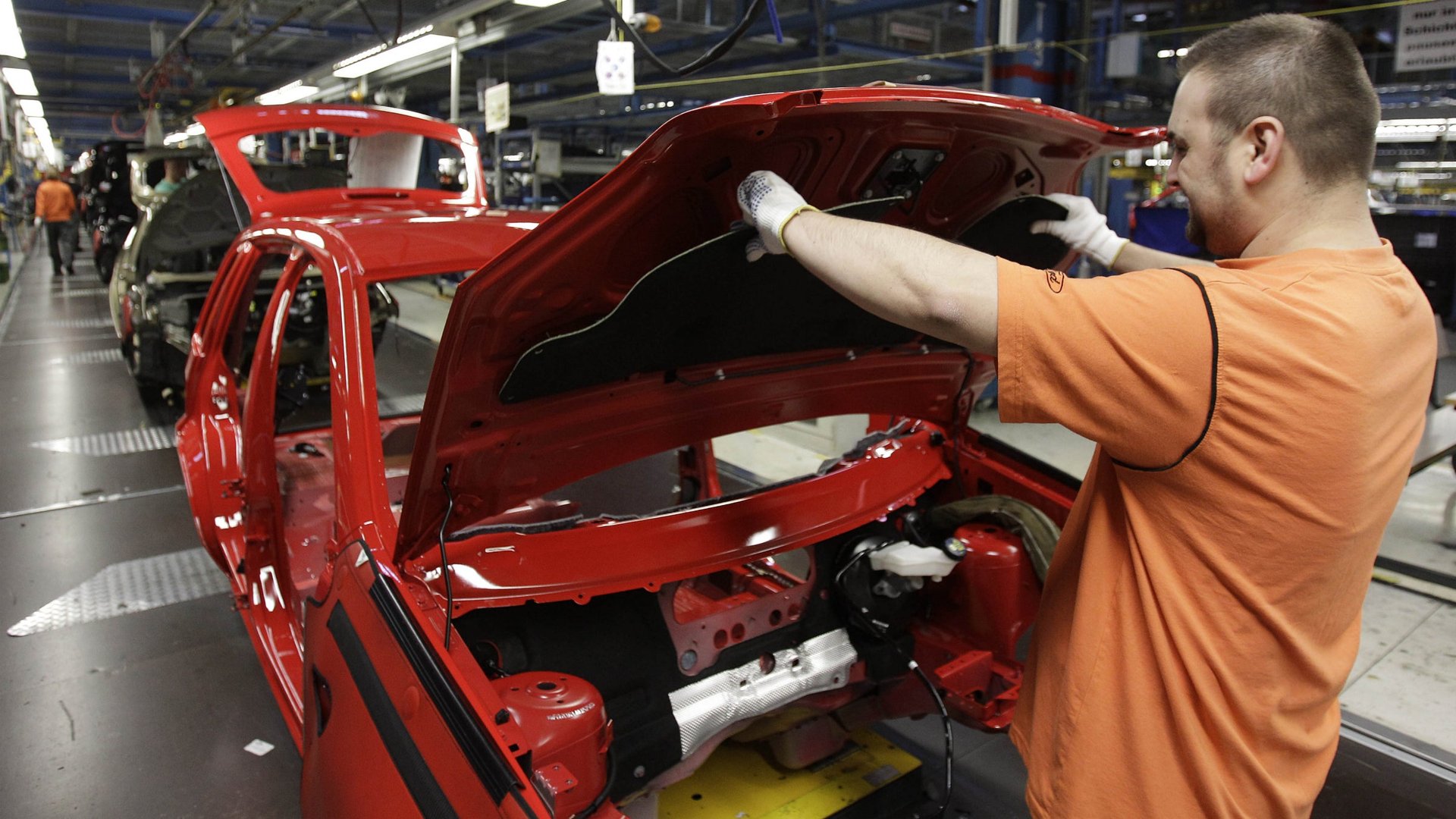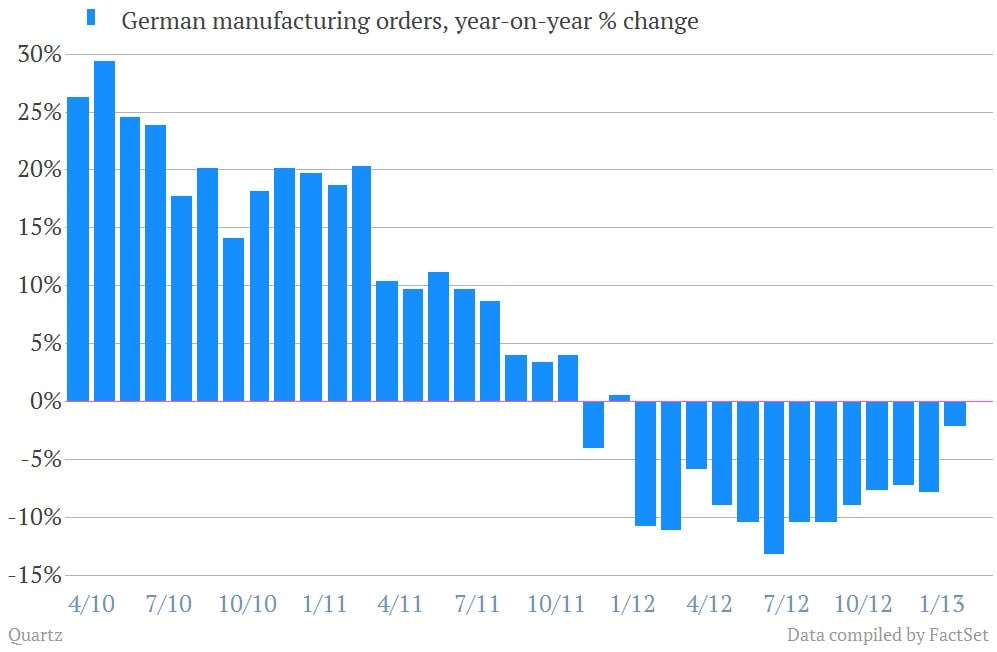Note to Germany: You are in Europe, and your struggling industrial production is proof
The European slowdown is putting the hurt on Germany’s world-class industrial base. And no wonder, since about 59% of the goods made in Germany are shipped to fellow European countries. With that in mind, it shouldn’t be a surprise that industrial production fell 1.3% in January from the same period last year. And that decline comes on top of numbers earlier this week that showed forward-looking manufacturing orders were persistently soft in January.


The European slowdown is putting the hurt on Germany’s world-class industrial base. And no wonder, since about 59% of the goods made in Germany are shipped to fellow European countries. With that in mind, it shouldn’t be a surprise that industrial production fell 1.3% in January from the same period last year. And that decline comes on top of numbers earlier this week that showed forward-looking manufacturing orders were persistently soft in January.

The fate of Germany’s economy has important political implications. As the alpha-member of the euro monetary bloc, Germany has the power to tip the balance of policy making between the austerity—cutting spending and raising taxes—now required of indebted European nations, and growth, which essentially means easier money from the ECB and, potentially, a higher risk of inflation. Inflation has long been a bogeyman for the German public. But if the German economy starts to suffer alongside countries grappling with austerity, Germany might be more amenable to an easier ECB.